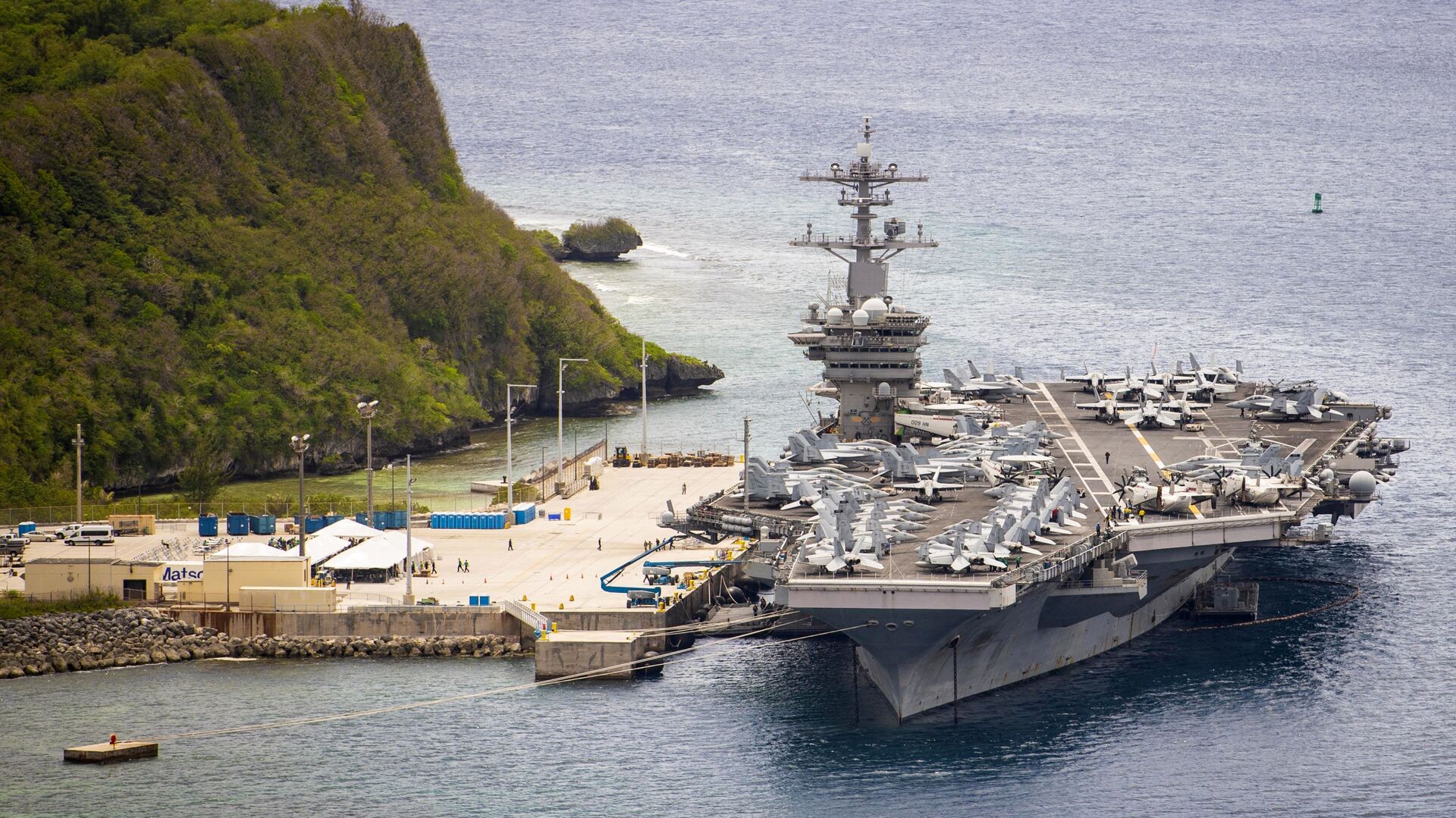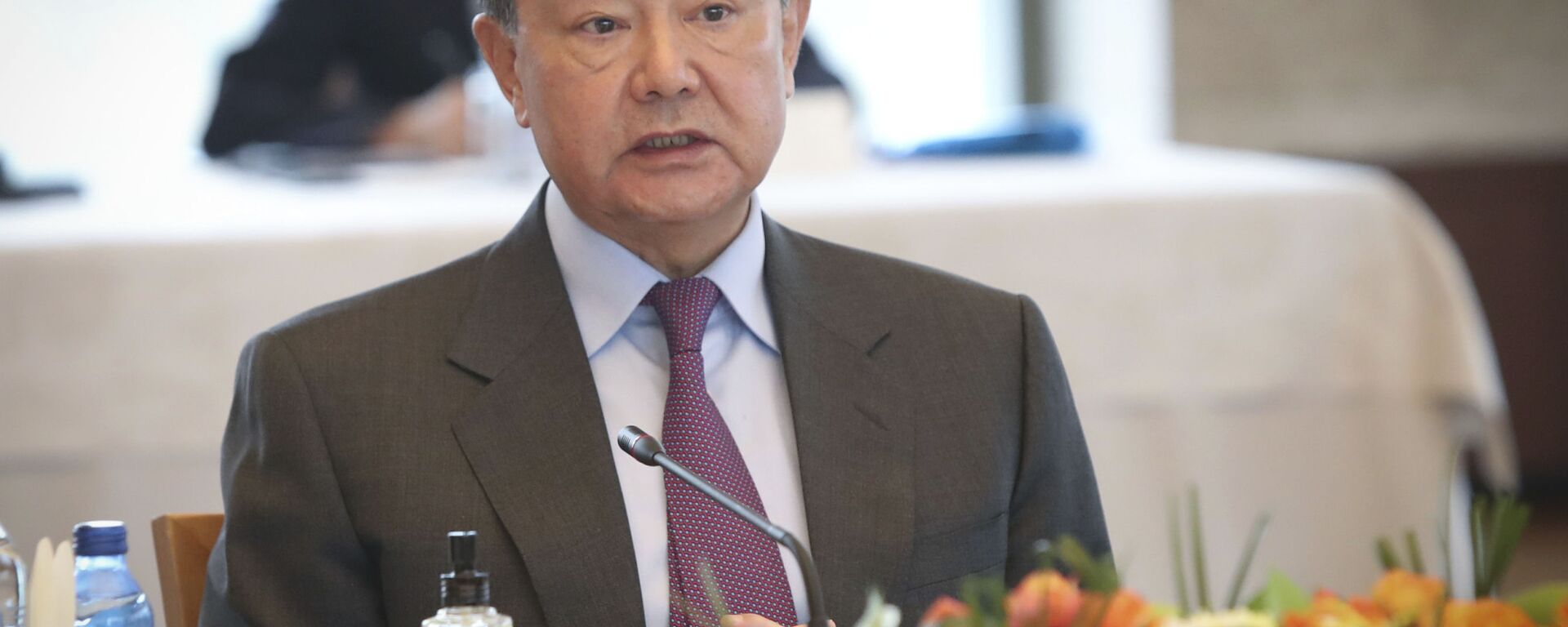https://sputnikglobe.com/20220915/us-hasnt-done-enough-to-address-primary-concerns-of-pacific-nations-australian-academic-says-1100800085.html
US Hasn't Done Enough to Address 'Primary Concerns' of Pacific Nations, Australian Academic Says
US Hasn't Done Enough to Address 'Primary Concerns' of Pacific Nations, Australian Academic Says
Sputnik International
The US Navy Pacific Fleet Commander told reporters in New Zealand this week that Washington has “neglected” the South Pacific region for two decades and that... 15.09.2022, Sputnik International
2022-09-15T10:18+0000
2022-09-15T10:18+0000
2022-09-15T10:18+0000
world
china
us
pacific
australia
new zealand
https://cdn1.img.sputnikglobe.com/img/107934/40/1079344037_0:79:3071:1806_1920x0_80_0_0_67b3b5c6cad868ea6220beab70d399d4.jpg
An Australian academic has said neither the US nor China has done enough to address the “primary concerns” of the Pacific Island Countries (PICs), amid increasing concerns that the South Pacific has become another theater of growing geopolitical rivalry between Washington and Beijing.“Sadly, no major power is doing much to tackle the challenge of climate change to improve the welfare of the people of the South Pacific,” he argued. The Pacific island states have on several occasions said that climate change poses the biggest threat to their security and existence.The comments by the expert came as leaders from 16 Pacific island nations and territories came together for the US-government backed Pacific Islands Conference of Leaders (PICL) conference in Hawaii. The two-day conference concluded on Wednesday.US President Joe Biden is also scheduled to host leaders from Pacific island states at the White House later this month, amid growing concerns in the US about Beijing’s increasing influence in the region.The academic said that Beijing’s entry into the region could lead to “security tensions” with the traditional regional powers, as he highlights that expanding security cooperation with the Pacific states was also one of the goals of China’s policy in the region.He stated there are concerns in Canberra as well as other Western partners about the security cooperation agreement between China and the Solomon Islands, which was formally unveiled in April this year.Beijing and Honiara have maintained that the security pact won’t lead to the establishment of a Chinese military base in the Pacific, amid concerns in Canberra that a potential Chinese base could affect the Australian military’s "patrolling patterns."He reckoned that, in return, China was seeking access to natural resources in the region, such as sourcing timber as well as seeking fishing rights.While Beijing has said that it welcomes trilateral and multilateral cooperation projects in the South Pacific by partnering with Australia and New Zealand, it has at the same time urged the two countries to “disentangle” their foreign policies from that of Washington’s.“We have no intention of competing with anyone for any influence, nor are we interested in engaging in any geopolitical competition,” Chinese Foreign Minister Wang Yi said in June, a day after concluding his eight-nation visit to the Pacific region.
https://sputnikglobe.com/20220606/china-willing-to-cooperate-with-australia-and-new-zealand-in-pacific-region-wang-yi-says-1096057023.html
china
pacific
australia
new zealand
Sputnik International
feedback@sputniknews.com
+74956456601
MIA „Rosiya Segodnya“
2022
News
en_EN
Sputnik International
feedback@sputniknews.com
+74956456601
MIA „Rosiya Segodnya“
Sputnik International
feedback@sputniknews.com
+74956456601
MIA „Rosiya Segodnya“
china, us, pacific, australia, new zealand
china, us, pacific, australia, new zealand
US Hasn't Done Enough to Address 'Primary Concerns' of Pacific Nations, Australian Academic Says
The US Navy Pacific Fleet Commander told reporters in New Zealand this week that Washington has “neglected” the South Pacific region for two decades and that the Biden administration would account for that by “engaging more deeply” with the region. Meanwhile, Pacific nations have urged Washington to shun superpower competition.
An Australian academic has said neither the US nor China has done enough to address the “primary concerns” of the Pacific Island Countries (PICs), amid increasing concerns that the South Pacific has become another theater of growing geopolitical rivalry between Washington and Beijing.
“Instead of engaging in security competition in the region, major powers like the United States and China should be strengthening cooperation in mitigating the effects of climate change,” Dr. Pradeep Taneja, a lecturer in Chinese politics and international relations at the University of Melbourne, told Sputnik.
“Sadly, no major power is doing much to tackle the challenge of climate change to improve the welfare of the people of the South Pacific,” he argued. The Pacific island states have on several occasions said that climate change poses the biggest threat to their security and existence.
The comments by the expert came as leaders from 16 Pacific island nations and territories came together for the US-government backed
Pacific Islands Conference of Leaders (PICL) conference in Hawaii. The two-day conference concluded on Wednesday.
US President Joe Biden is also scheduled to host leaders from Pacific island states at the White House later this month, amid growing concerns in the US about Beijing’s increasing influence in the region.
Taneja underlined that the US and its regional allies, such as Australia and New Zealand, have “historically” been the predominant powers in the region, but Beijing has been emerging as a “significant new power” in the Pacific.
The academic said that Beijing’s entry into the region could lead to “security tensions” with the traditional regional powers, as he highlights that expanding security cooperation with the Pacific states was also one of the goals of China’s policy in the region.
He stated there are concerns in Canberra as well as other Western partners about the security cooperation agreement between China and the Solomon Islands, which was formally unveiled in April this year.
Beijing and Honiara have maintained that the security pact won’t lead to the establishment of a Chinese military base in the Pacific, amid concerns in Canberra that a potential Chinese base could affect the Australian military’s
"patrolling patterns."Taneja further highlighted that Beijing was also emerging as a major foreign aid donor to the Pacific countries and also expanding its economic cooperation with them.
He reckoned that, in return, China was seeking access to natural resources in the region, such as sourcing timber as well as seeking fishing rights.
While Beijing has said that it welcomes trilateral and multilateral cooperation projects in the South Pacific by partnering with Australia and New Zealand, it has at the same time urged the two countries to “disentangle” their foreign policies from that of Washington’s.
“We have no intention of competing with anyone for any influence, nor are we interested in engaging in any geopolitical competition,” Chinese Foreign Minister Wang Yi said in June, a day after concluding his eight-nation visit to the Pacific region.





